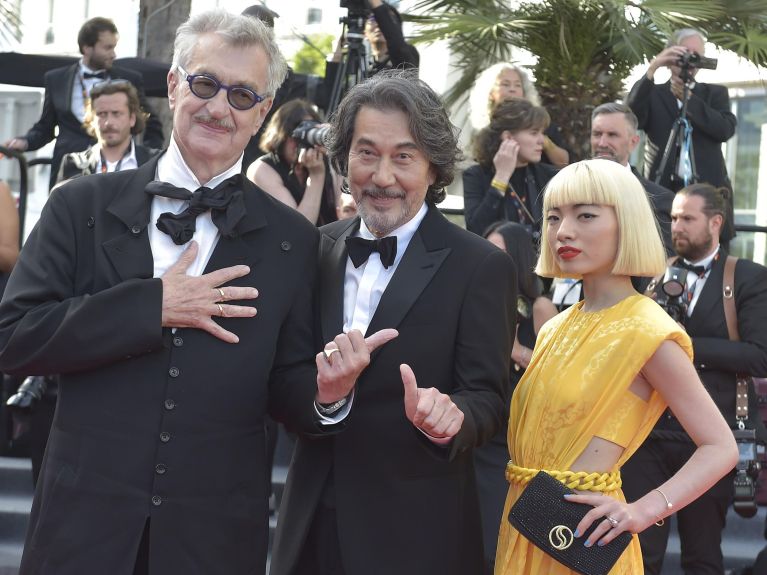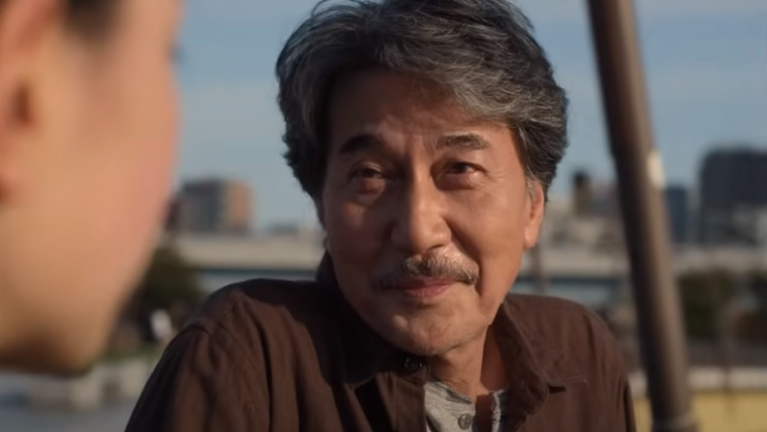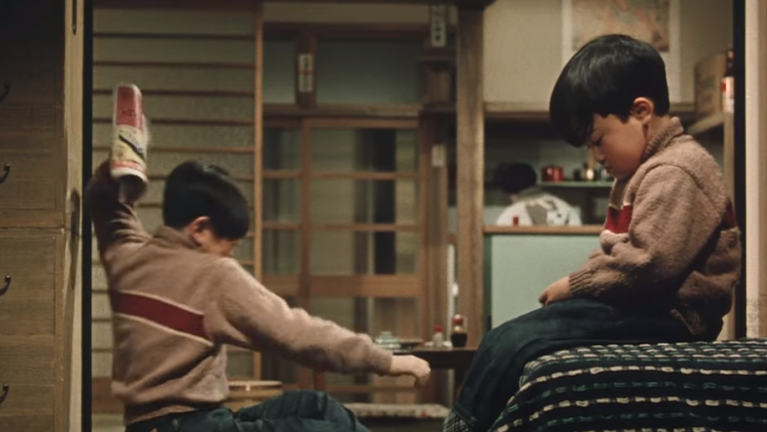Wim Wenders: A German director with a love of Japanese film
Wim Wenders is competing for an Oscar for Japan with “Perfect Days”. The country and its cinematic culture have long fascinated the German director.

“He is German, but he has such a good understanding of Japan that I have the impression that he must have been Japanese in a former life,” says the actor Kōji Yakusho about the filmmaker Wim Wenders, in whose new film “Perfect Days” he plays the leading role: Hirayama, a young man who cleans public toilets in Tokyo’s Shibuya neighbourhood - small, distinctive buildings that were designed by well-known architects and convey the impression of cleanliness and transparency.

Wenders presented “Perfect Days” at the Cannes Film Festival in 2023, where Yakusho won the award for best actor. Now the film is nominated as Japan’s submission for the Oscars. The country will therefore be represented for the first time by a film made by a non-Japanese director. The nomination is also a premiere for Wenders: this is the first time he has been nominated in the category Best International Feature Film. To date, the director has been in the running for Oscars only with documentary films: with “Buena Vista Social Club” in 1999, with the 3D documentary “Pina” in 2012 and with “The Salt of the Earth” (jointly with Juliano Ribeiro Salgado) in 2015, but so far he has not won an Oscar.
Dieses YouTube-Video kann in einem neuen Tab abgespielt werden
YouTube öffnenThird party content
We use YouTube to embed content that may collect data about your activity. Please review the details and accept the service to see this content.
Open consent formTribute to Japanese filmmaker Ozu
Wim Wenders has been to Tokyo many times since the 1980s, often to shoot films there. He headed the jury of the Tokyo Film Festival in 2023. Wenders says it is a great honour for him that “Perfect Days” is allowed to represent Japan at the Oscars. For the German director, the film is above all a tribute to the Japanese filmmaker Yasujirō Ozu, who sparked his fascination with and love for Japan. As Wenders says in his film “Tokyo-Ga”: “If in our century something sacred still exists, if there were something like a sacred treasure of cinema, then for me that would be the work of the Japanese director Yasujirō Ozu. He made 54 films. Silent movies in the 1920s, black-and-white films in the 1930s and 1940s, and finally colour films until his death on 12 December 1963, his 60th birthday.”
At the start of his career, Wenders, who was born in 1945, had still been focusing mainly on American cinema. For the legendary magazine “Filmkritik”, he wrote a lot in the 1960s about American cinema, which more conservative film critics in Germany tended to neglect and scorn (westerns, for example). Wenders studied at the University of Television and Film (HFF) in Munich – American cinema and American rock music feature heavily in his early films.
It was not until 1973 that Wenders saw a film by Yasujirō Ozu while staying in New York. He always tells the story, with great pleasure and no small degree of pathos, of how he had a housewife from Brooklyn to thank for this discovery. She had watched an Ozu film by chance and had sent numerous letters to American film distribution companies, begging them to include this wonderful director in their listing – until the American film producer Dan Talbot responded and boldly took on four of his films. And these were the works that Wenders saw: “I left the cinema in a state of bliss but already turned straight around at the next corner to go back and watch the film a second time,” recalled Wenders.
Dieses YouTube-Video kann in einem neuen Tab abgespielt werden
YouTube öffnenThird party content
We use YouTube to embed content that may collect data about your activity. Please review the details and accept the service to see this content.
Open consent formThe German director then wanted to watch simply all of Ozu’s works, flew to Tokyo several times and in 1985 filmed “Tokyo-Ga” there, a diary film in which he tracks the changes in and decline of family and national identity since Ozu’s era. He met Ozu’s great actor Chishū Ryū and the cameraman Yûharu Atsuta, who told him about Ozu’s doggedly straightforward style of directing.
Film about the Japanese fashion designer Yamamoto
A short time after “Tokyo-Ga”, Wenders had another intense encounter with Japan in 1989 when he filmed “Notebook on Cities and Clothes” about the Japanese fashion designer Yōji Yamamoto. He describes with great impact how he first wore a suit designed by Yamamoto: “It was me in the mirror, without doubt, just even more ‘me’ than before.” In 2023, Wenders was one of the models on the catwalk at a Yamamoto show.
Ozu and Yamamoto are about more than just questions of aesthetics or cinema. For Wenders they are encounters that are elemental, existential, personal, almost intimate. Even in his early films there is a minimalism to the cinematic observations that is reminiscent of Ozu’s work. His early film critiques are also more like silent observations of what is taking place on the screen.
Dieses YouTube-Video kann in einem neuen Tab abgespielt werden
YouTube öffnenThird party content
We use YouTube to embed content that may collect data about your activity. Please review the details and accept the service to see this content.
Open consent formHirayama for example, the protagonist in “Perfect Days”, resembles the taciturn young men in Wenders‘ early films “The Goalie’s Anxiety at the Penalty Kick” (1972), “Alice in the Cities” (1974), “Kings of the Road” (1976) and “Paris, Texas” (1984) – or indeed the two angels, played by Bruno Ganz and Otto Sander, in his wonderful film “Wings of Desire”, which was produced in 1987 shortly after “Tokyo-Ga”. It is a film that, rather than conjuring up transcendence, depicts instead the secularistic, the real, the present and the naive in a dilapidated Berlin shortly before reunification.
Hirayama in “Perfect Days” likes to read William Faulkner or Patricia Highsmith before going to sleep at night. He listens to music on his way to work, particularly 1960s rock - the same music in other words that Wenders would listen to when shooting his early films. ”Sunny Afternoon” by the Kinks is one of these tracks. His graduation film at the University of Film, “Summer in the City”, is in fact “dedicated to The Kinks”. Thus “Perfect Days” brings us back full circle to the early days of Wenders‘ work,his youth and childhood, and possibly to that former life in which he was Japanese.





